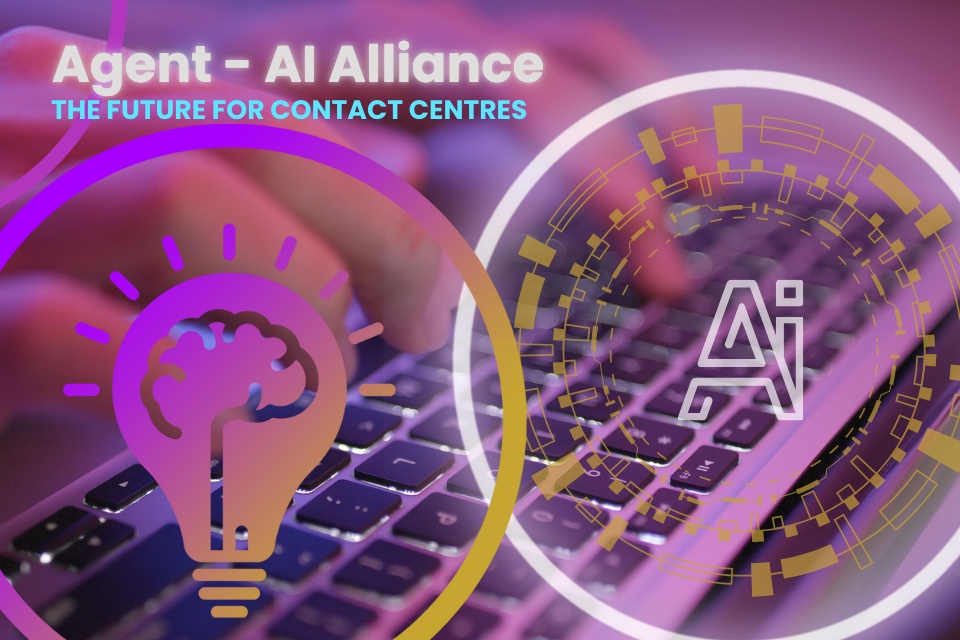AI MONTH: From Pilot to Scale – Choosing the best solutions for you contact centre transformation

While pilot AI projects have shown impressive promise in automating responses, summarising calls, and coaching agents in real time, success at scale depends on choosing the right technology partner. For leaders attending the Contact Centre & Customer Services Summit, the focus is now shifting from early experimentation to enterprise-wide implementation… Integration with Existing Platforms One […]
June 2025 is Artificial Intelligence Month on Contact Centre Briefing: Here’s how to get involved!

Each month on Contact Centres Briefing we’re shining the spotlight on a different part of the customer care market – and in June we’re focusing on Artificial Intelligence solutions. It’s all part of our ‘Recommended’ editorial feature, designed to help customer care industry buyers find the best products and services available today. So, if you’re a […]
What next for AI and customer engagement in 2025?

AI adoption has continued at pace throughout 2024, but the vast majority of organisations have yet to embed AI enabled innovation within core operational processes. One third are engaging in limited implementation, while 45% are still in the exploratory phase. While there is no denying the power of GenAI, the majority of businesses have struggled both […]
AI-based support increasingly accepted by consumers, says survey

Improved efficiency and personalised support experiences are driving increased consumer acceptance and satisfaction of AI in customer service interactions. That’s according to a new regional survey by Vonage, which says the findings demonstrate consumers have grown exceptionally more receptive to the use of AI in customer support. Seventy percent (70%) of respondents believe that AI has […]
The AI-Agent Alliance – A powerful partnership for contact centre success

By Ardanis Today, 4.25 billion people worldwide actively use email, with 319.6 billion emails exchanged daily. Since the first email was sent in 1971, this method of communication has remained the most popular digital channel, accounting for 13.7% of all interactions (Contact Babel 2023)*. Consumers across all age groups appreciate the convenience of email, allowing them […]
Your Guide to Gen AI: Unlocking customer satisfaction with AI chatbots
In the latest update from our partners Freshworks, we take a look at this handy guide to implementing AI into your customer service strategy. Freshworks will be speaking at the upcoming Contact Centre and Customer Services Summit. This guide covers key areas where generative AI chatbots can reduce the burden on your service teams, allowing agents […]
Overcoming the fear of AI in the contact centre

By Ardanis As AI continues to transform the landscape of contact centres, it brings with it both opportunities and challenges. One significant challenge is the mitigation of customer concerns surrounding the use of AI. While AI promises to enhance and improve customer satisfaction, it also raises real concerns. The loss of human touch in customer […]
DOWNLOAD: Navigating the AI seascape

AI has been a hot topic of conversation for the past 18 months, and the discussions around it continue to evolve. However, determining the best ways to deploy AI in the contact centre and maximise its benefits remains a challenge, even for the most advanced organisations. This CCMA research, supported by Route 101, offers a deep dive for […]
If you specialise in Artificial Intelligence solutions we want to hear from you!

Each month on Contact Centres Briefing we’re shining the spotlight on a different part of the customer care market – and in June we’re focusing on Artificial Intelligence solutions. It’s all part of our ‘Recommended’ editorial feature, designed to help customer care industry buyers find the best products and services available today. So, if you’re a […]
AI set to impact customer experience in financial services

New research reveals that the majority (52%) of financial services employees feel positive or very positive about the growth of AI, and 62% say learning to use new technologies increases their motivation at work and improves customer experience. More than half (56%) are also confident they have the necessary skills to work with more AI […]

